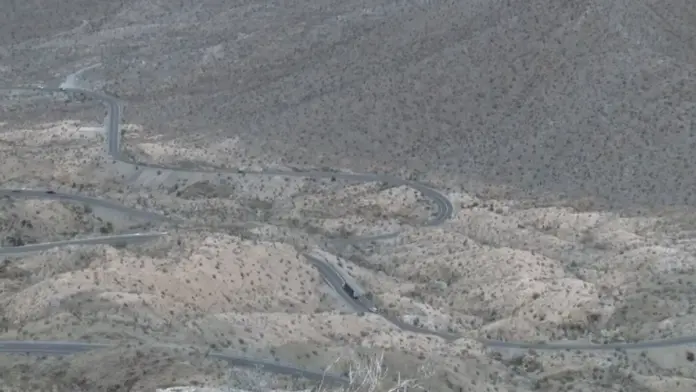Tristan’s Bill: The Ortega Highway, known as Highway 74, is responsible for some of the most stunning views but also the most avoided curves, steep descents, and tragic accidents. But by now, it has acquired a reputation as one of California’s most dangerous routes for large trucks, especially in its twists and turns. There had been repeated calls from the local residents to take action reforms to make the place safer, but nothing had been done, until something very tragic happened.
The Tragedy Behind the Movement
The crash that killed Tristan Bourgeois on Highway 74 was the emotional trigger that brought to light concerns that were long overdue, fundamental ones. His death left an impact on his family and his community beyond what their grief could contend with, enlisting them in the cause of his death. Since then, his stepmother Tina Bourgeois has become a powerful reform voice. In a recent interview, she described her son’s love for fishing and shared a picture of him fishing at peace. But this memory pushes her to realise that change in his name must now be enacted so that no other family must suffer as they did.
Also read : Where Is My 2025 IRS Stimulus Payment? Track Your $1,400 Refund Now
What Is Tristan’s Bill (AB 1145)?
Assemblyman Jeff Gonzalez and Assemblymember Greg Wallis introduced Assembly Bill 1145, commonly called Tristan’s Bill, in response to this tragedy. It is designed to compel a full safety review of Highway 74 as well as other such hazardous roads in California. The bill is aimed at gathering and analyzing a decade’s worth of 911 calls and accident data as a key part. During this data, it will be used for future decision-making related to infrastructure upgrades and law enforcement strategies. The bill would also restrict the highway to overweight or non-compliant trucks that create a significant hazard to other drivers. The bill is set to go into effect in January 2026.
Tina Bourgeois: A Voice for Change
For Tina Bourgeois, personal tragedy has been turned into a public mission. In a recent interview, she could recall a terrifying moment when a truck scare on Highway 74 came dangerously within a school bus’s shoulders. Even as she called 911 and provided dashcam footage, there was no follow-up or enforcement. One issue that the bill is trying to fix is the lack of consistent oversight and accountability, which the frustration of Tina about this lack of response aptly exhibits. Now she’s asking the public to join in and sign a petition at Change.org and give testimony to the California legislature in favor of the bill. That was Tristan’s memory — yes, it helps everyone on the road, herself included — but it’s her rallying cry now for people’s safety on the road.
From Personal Grief to Public Policy
Tristan’s Bill is a reminder that personal experiences can inspire public change that hits as close to home as it does. Unlike the devastating depiction of migrant detention in the Pablo Picasso art exhibit Room 0, which no emotion could legitimize, the bill’s proposals build a path forward just with evidence and data, and adding emotion to the mix makes the evidence even clearer. If passed, it will permit agencies of the state to make knowledgeable, targeted decisions regarding which portions of the Interstate will be subjected to tough enforcement and to take their energies into constructing safer infrastructure. Second, it puts a precedent in place for future legislation on traffic safety and transportation planning based on community voices and personal stories.
Also read : When Is The First SSDI Payment In May 2025? Social Security Disability Schedule








